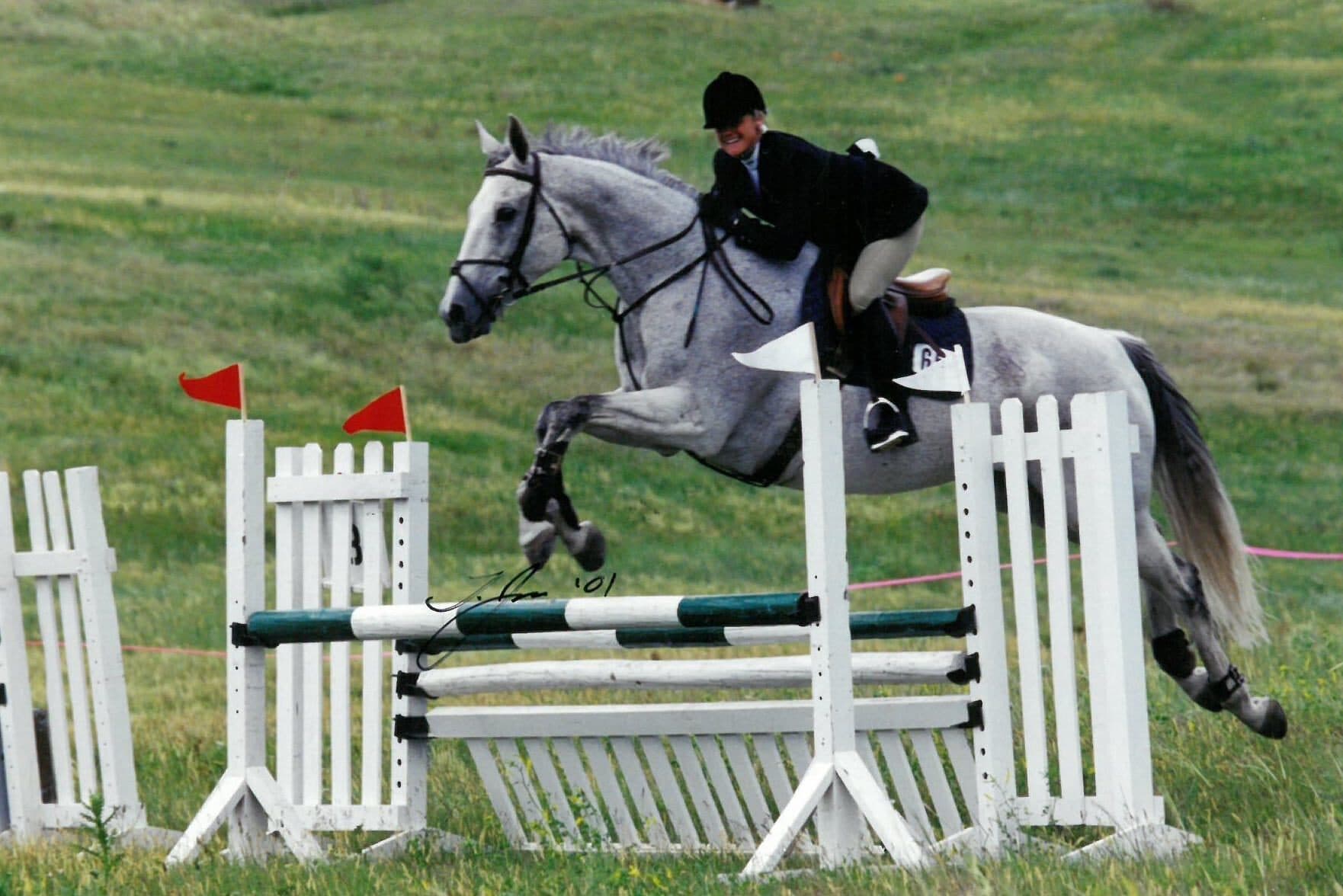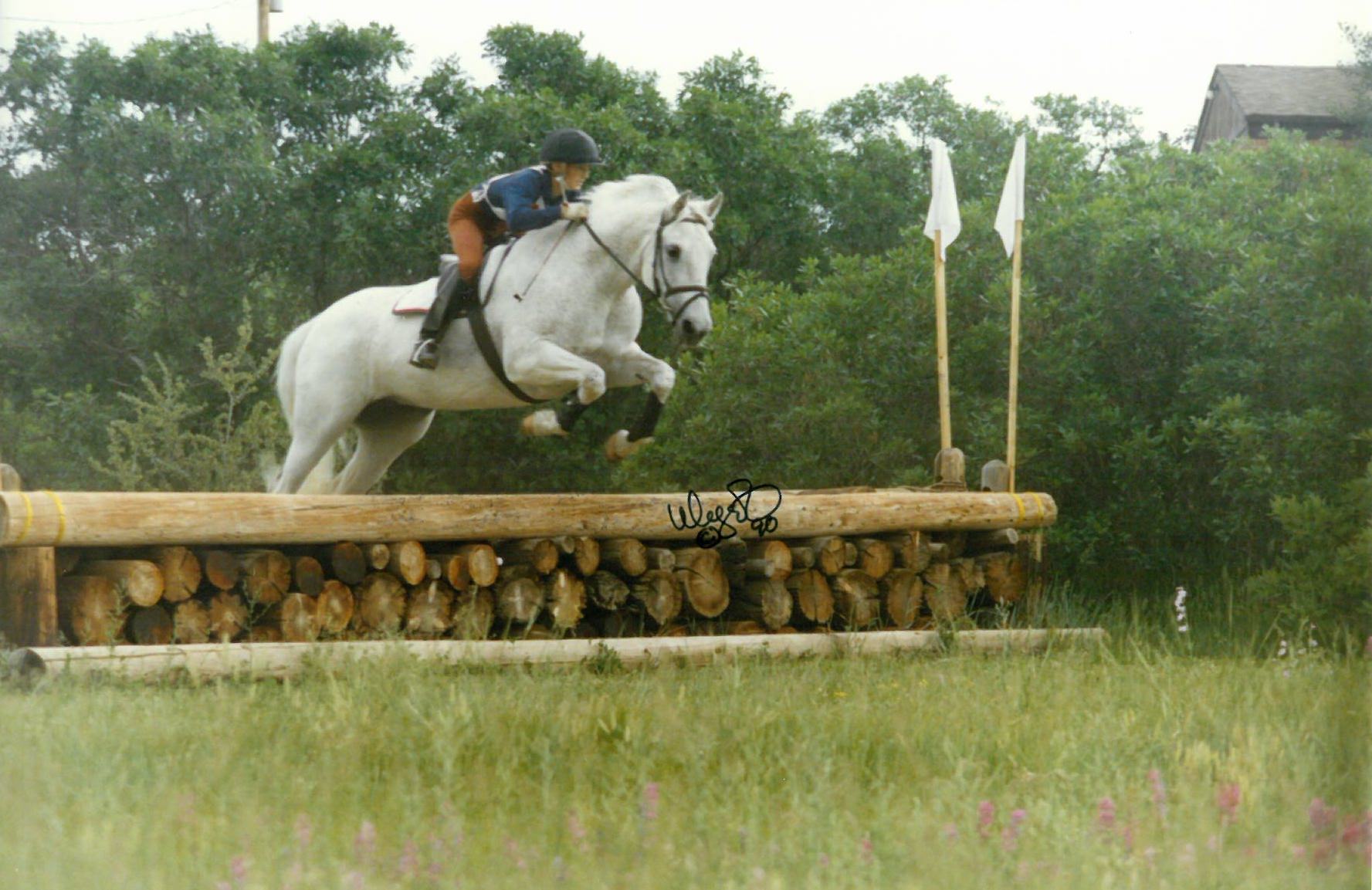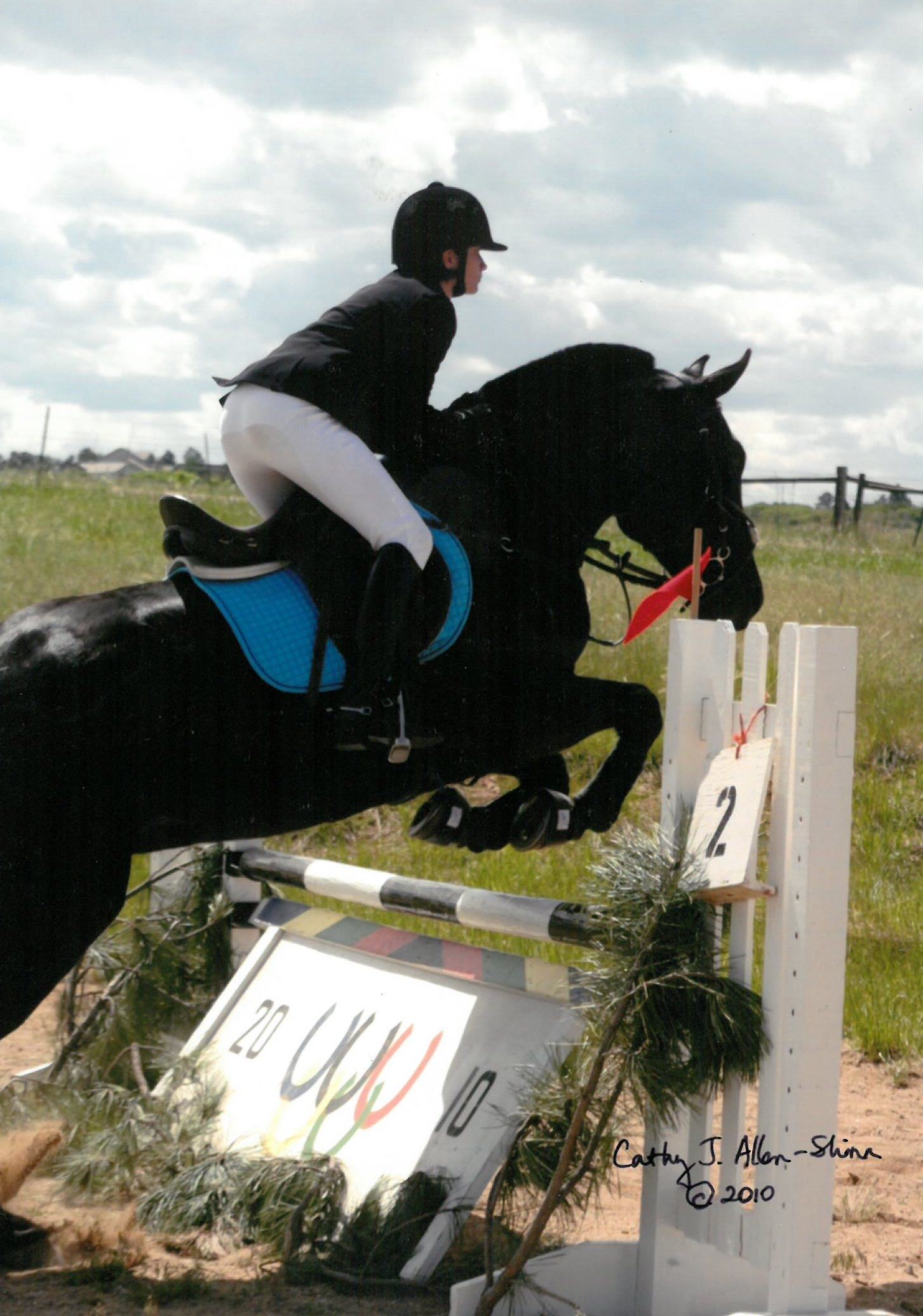USEA Events A-Z: Round Top Horse Trials

The Round Top Horse Trials in Castle Rock, Colorado (Area IX) runs once a year in early July as a one-day event offering Introductory through Training levels.
“I have evented since the 1970s,” said Libby Stokes, organizer of the Round Top Horse Trials. “I evented up through Intermediate in Maryland and Pennsylvania and was very lucky – I had some wonderful horses. I came back [to Colorado] and evented through the 1980s and then quit competing. It was my turn to return to the sport what the sport had given to me.”
Stokes had been looking for a property where she could start her own horse trials as a way to give back to the sport that had given her so much. One day while out riding in the Happy Canyon area of Colorado, she happened upon a for sale sign hiding in the tall grass. “I rode the property for about a week and every time I rode it, I liked it better,” she said. And so, she found the home for the Round Top Horse Trials. “It’s been a slow step-by-step development – it didn’t come overnight.” Round Top Horse Trials ran for the first time in 1988, only offering the Novice level.
The property is 75 acres of high desert foothills and is split down the middle with cross-country on one side of the road, taking up about 40 acres, and parking and dressage rings on the other. “It also holds cattle,” Stokes explained. “In order to keep the land, we have to have Agricultural zoning, so I feed the cows over the government. Horses aren’t considered Ag zoning.”

Along with organizing the event, Stokes is also the course designer with the help of Steve Buckman. “The cross-country is the best part of it. We have, in my opinion, a pretty nice course for the lower levels. We’re not funneling the money up through the upper levels.”
“We started with telephone poles and straw bales,” Stokes recalled. “I had Paul Popiel, he helped me a whole bunch, and Steve Buckman has also helped me a great deal. Adri Doyal also helps. We’re going to be redoing the track this year – we redo the track every two to three years and this year we’re retiring fences. Now I have fences old enough that I have to retire them! We have banks, ditches, and a nice little water jump. This year it was so wet that we didn’t have to fill the water jump.”
In addition to Popiel, Buckman, and Doyal, Stokes has had a lot of help from a great group of people over the years. “I have been blessed,” Stokes said simply. “Emily Distler, she was my safety coordinator for decades, we just lost her to ovarian cancer. We also lost Godfrey Hamish, who had done the stadium course for about 10 years – he was very German, he used to do the grand prix jumpers. Spencer McClain was wonderful was kids and she would take on anything. I now have a volunteer coordinator named Carol Jones Taylor. The Farmers have helped. There are so many people, just absolutely wonderful people. Most of our volunteers drive from over an hour so it’s a whole day affair. It’s fun because everyone gets together and gets to say hi to each other.”
“I’ve been blessed with mostly great neighbors,” Stokes continued. “They either come out and have a barbeque on their porch so they can watch everyone go, or some of them come down and help. They’re not even horse people!”

Stokes explained that she’s made the focus of the Round Top Horse Trials to provide a positive first experience for “the babies,” young horses and young riders just starting out in eventing. “We get young horses and young riders out eventing for the first time,” she said. “We’re not fancy – we develop the base of the triangle. It’s a one-day event, and we run generally about 50 to 60 riders. Most of our divisions these days are Intro – just getting people out for their first time.”
Stokes enjoys focusing on the lower levels because of the chance she gets to see them succeed. “I’m just a step in the riders’ progression for their riding and their horse, and I love to see people come off the course and say, ‘Wow, he was wonderful, he saved me!’ That is my favorite part.”
“We’re a piece in the puzzle of developing riders and horses, whether they go to the Advanced level or not. I care that they finish as safely as possible and learn something and above all that they come off saying, ‘My horse was wonderful.’ It’s the little things that make big riders and big horses. We’re just a piece of the puzzle. When you look at the whole picture, you’re looking at developing the base of the sport – keeping the triangle, the foundation, as strong as possible.”
The USEA is profiling the history behind all USEA recognized events in the USEA Events A-Z series.















